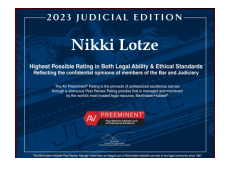Consequences for Refusing to Submit to Blood Alcohol or Field Sobriety Tests
As chemical testing has evolved into a much relied-on prosecution tool, ”implied consent” laws have evolved to defeat the drunk driver’s inclination to refuse to consent to such testing. An implied consent statute does not command that a person suspected of driving while intoxicated be forced to submit to a chemical test; rather, the person may refuse to take a chemical test of his or her blood, breath, or urine, but if certain statutorily prescribed procedures are complied with, such a refusal does not go unpunished.
Criminal Offense of Failure to Assist an Injured Person
Motorists involved in any type of motor vehicle accident where personal injury or death occurs are required to remain at the scene until police arrive. All states have statutes setting out certain procedures a motorist must follow after involvement in a collision causing death or injury. Moreover, the statutes treat the term “accident” or “collision” to include all automobile collisions, intentional as well as unintentional.
Not Guilty by Reason of Insanity Defense to DUI/DWI
Although the defense of not guilty of drunk driving by reason of insanity may seem a bit far-fetched, this defense has worked in some cases. If a defendant asserts a defense of insanity, he is essentially asking the court to declare him legally insane.
Overview of Blood Alcohol Concentration (BAC) in Drunk Driving Cases
All states and the District of Columbia have drunk driving statutes. Every statute contains a legal definition of intoxication, but the legal definition does vary between the states. In order for someone to be convicted of driving while under the influence (DUI), the prosecution must prove that the defendant was so affected by the consumption of alcohol that the defendant’s faculties were impaired. It is not always necessary to show that the defendant’s driving ability was impaired.
Penalties for Drunk Driving
State legislatures have enacted drunk driving laws that impose strict penalties on offenders. One of the mechanisms most widely used to combat drunk driving and increase highway safety is administrative license suspension (ALS).













